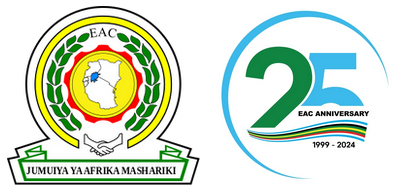
Customs Union
Posted in
Integration Pillar
What is the Customs Union?
The Customs Union is the first Regional Integration milestone
and critical foundation of the East African Community (EAC),
which has been in force since 2005, as defined in Article 75 of
the Treaty for the Establishment of the East African Community.
It means that the EAC Partner States have agreed to establish
free trade (or zero duty imposed) on goods and services amongst
themselves and agreed on a common external tariff (CET), whereby
imports from countries outside the EAC zone are subjected to the
same tariff when sold to any EAC Partner State.
Goods moving freely within the EAC must comply with the EAC
Rules of Origin and with certain provisions of the Protocol for
the Establishment of the East African Community Customs Union.
Sectors under the Customs Union:
Enhancing food security and rational agricultural and
livestock within the Community through harmonisation of
agricultural policies as well as joint programmes for
efficient and effective production.
Enabling the EAC Partner States to enjoy economies of
scale, with a view to supporting the process of economic
development through the establishment of a Single
Customs Territory.
Undertaking joint action towards the prevention and
control of communicable and non-communicable diseases
and to control pandemics and epidemics of communicable
and vector-borne diseases.
Accelerating economic growth and development of the
Partner States by facilitating the free movement of
persons and labour through the adoption of common
policies and procedures.
Improving the competitiveness of the industrial
sector so as to enhance the expansion of trade in
industrial goods within the Community and the export
of industrial goods from the EAC Partner States.
Coordinating, harmonising and complementing
transport and communications policies; improving and
expanding the existing transport and communication
links; and establishing new ones.
Collectively promoting and marketing the Community
as a Single Tourist Destination while conserving
and ensuring sustainable utilisation of wildlife
and other tourist sites.
Rationalising investments and the full use of
established industries to promote efficiency in
production, as well as harmonising trade policies,
investment incentives and product standards, with
a view to promote the Community as a single
investment area.
Key Initiatives under the Customs Union:
Involves interconnectivity of customs systems to
facilitate seamless flow of information between customs
stations and a payment system to manage transfers of
revenues between EAC Partner States
EAC is benefiting from AGOA, the cornerstone of U.S.
economic engagement with the countries of sub-Saharan
Africa.
Consisting of 26 member countries, the COMESA-EAC-SADC
Tripartite is accelerating economic integration for the
people of the Eastern and Southern African Region.
Trade and development agreements have been negotiated
between the EU and African, Caribbean and Pacific
partners to cover goods, fisheries and development
cooperation.
Four EAC Partner States receive full duty-free and
quota-free access to the EU for all their exports with the
exception of arms and armaments.









